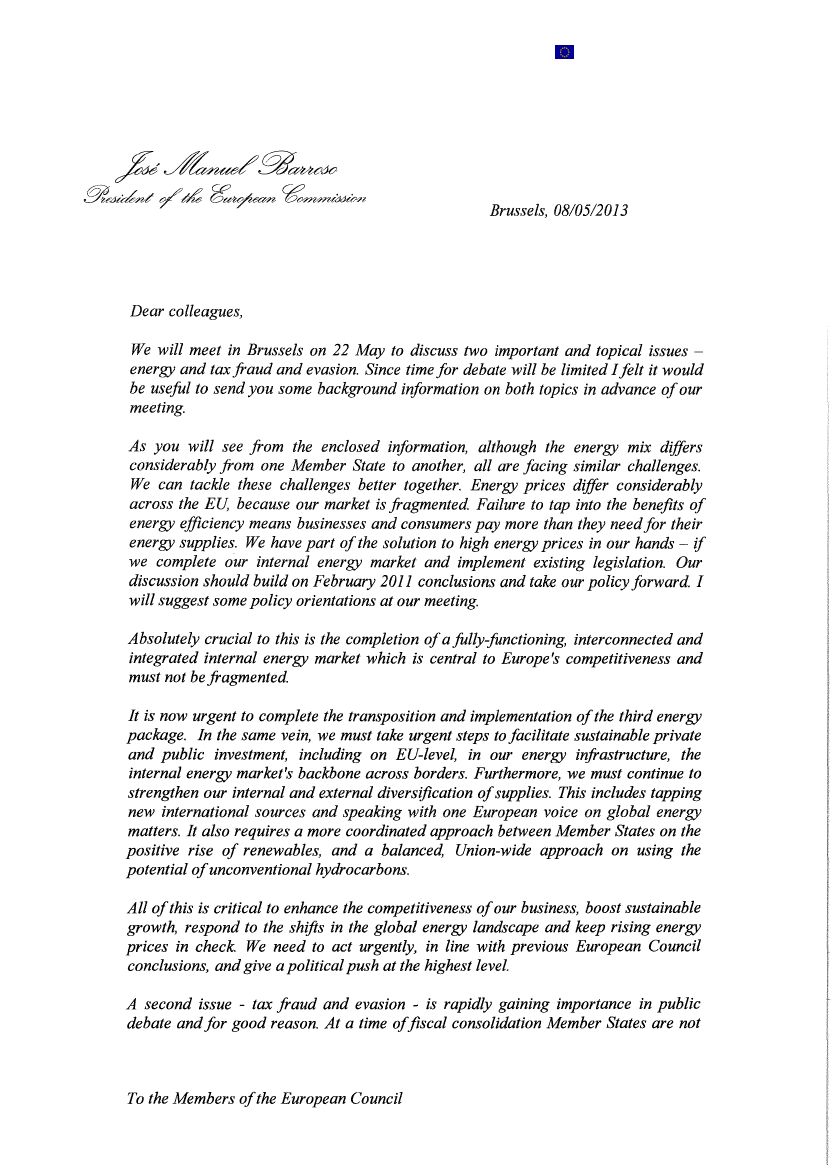
Ref. Ares(2013)1023941 - 08/05/2013
Brussels, 08/05/2013
Dear colleagues,
We will meet in Brussels on 22 May to discuss two important and topical issues -
energy and tax fraud and evasion. Since time for debate will be limited I felt it would
be useful to send you some background information on both topics in advance of our
meeting.
As you will see from the enclosed information, although the energy mix differs
considerably from one Member State to another, all are facing similar challenges.
We can tackle these challenges better together. Energy prices differ considerably
across the EU, because our market is fragmented. Failure to tap into the benefits of
energy efficiency means businesses and consumers pay more than they need for their
energy supplies. We have part of the solution to high energy prices in our hands - if
we complete our internal energy market and implement existing legislation. Our
discussion should build on February 2011 conclusions and take our policy forward. I
will suggest some policy orientations at our meeting.
Absolutely crucial to this is the completion of a fully-functioning, interconnected and
integrated internal energy market which is central to Europe's competitiveness and
must not be fragmented.
It is now urgent to complete the transposition and implementation of the third energy
package. In the same vein, we must take urgent steps to facilitate sustainable private
and public investment, including on EU-level, in our energy infrastructure, the
internal energy market's backbone across borders. Furthermore, we must continue to
strengthen our internal and external diversification of supplies. This includes tapping
new international sources and speaking with one European voice on global energy
matters. It also requires a more coordinated approach between Member States on the
positive rise of renewables, and a balanced, Union-wide approach on using the
potential of unconventional hydrocarbons.
All of this is critical to enhance the competitiveness of our business, boost sustainable
growth, respond to the shifts in the global energy landscape and keep rising energy
prices in check We need to act urgently, in line with previous European Council
conclusions, and give a political push at the highest level.
A second issue - tax fraud and evasion - is rapidly gaining importance in public
debate and for good reason. At a time offiscal consolidation Member States are not
To the Members of the European Council